Reflection: "It's Time"The waiting's now over. It's Christmas Day and we're celebrating the birth of our Lord and Saviour, Jesus. All that waiting during Advent has paid off, hasn't it! I wonder how many times you’ve either read, or heard read, the Christmas story from Luke’s Gospel? It’s a story about simple shepherds, in a field, watching over their flocks, when suddenly, in a starlit sky, there comes a bright light – which turns out to be an angel and all the heavenly host – proclaiming good news to all of humanity. A scary thought for a bunch of uneducated farm workers. Amazingly, we read that the shepherds leave their flocks (which is something that they wouldn’t normally do) to follow the directions given to them by the angel and they are led by the star which is hovering over Mary, Joseph and the baby Jesus. They find him lying in the straw of a manger, surrounded by the silent, innocent animals in the stable. No kings, nobles, or well-educated folk – just shepherds. Jesus was God’s gift to the common people. Question: Have you ever thought how you’d feel if you gave a beautiful present to somebody, maybe a child, only to find that either: they haven’t opened it, or they’ve opened it and then ignored it, or they’ve played with it for a short time, but then forgot about it, or, worst still, they’ve broken it. If you can identify with this feeling, you might start to understand how our heavenly father, God, feels. He gave the world the best gift, ever, at Christmas about 2,000 years ago - in the shape of his son, Jesus, but the world wasn’t too appreciative. Some people refused to believe that he was God’s son, other people followed him for a while, before going back to their old ways and the religious leaders even plotted to have him killed. Luckily, many people HAVE accepted God’s gift – wholeheartedly - and are still following Jesus today. I pray that we may all find ourselves in that last category and that we remember to thank God, every day, for his fantastic present. Christmas is usually a constant celebration - year after year, we tend to follow tradition. But, in reality, no two years are ever the same and our lives will never be the same. Every year we are, in fact, older and, hopefully, wiser. At this time of the year, most of us are usually busy, running around, seemingly chasing our tails, buying presents for our loved ones and even people that we don’t really see for the rest of the year. We’re stocking up on food for parties and meals with family and friends, or visiting others. But is all this usual “busyness” really helpful?This year we have a bit more time. We’re buying presents online, instead of visiting stores. Our options to travel widely, to be with family and friends are limited. We’re not visiting as many people as we used to, so we need to look in other directions. Maybe we should be giving more thought to how WE can be a “gift” to other people, sharing the news of God’s gift to us. It’s often a challenge in how we interact with those around us, as the world becomes less and less religious. We could ring lonely neighbours more often, or invite someone to join us for Christmas lunch, etc. Whatever the circumstances, we should be comfortably confronting change and actively doing work in the Kingdom of God, even if it is different to the ways we’ve done it in the past. We’re called to partner with God, working for him in the world around us. We pray that 2024 will be a year in which we can be even more effective in passing on God’s love to the people we come in contact with (however that may occur). I encourage you to rejoice this day, for the light (Jesus) has come into the world and I encourage you to take that light out into the darkness and be a beacon for God’s love of humanity. “Christ was born amongst us and bids us to go in his name: to declare the goodness and justice of God, the joy of salvation and the promise of abundant life for all. May the God of new beginnings fill our lives with love. May the call of Christ inspire our service. May the presence, power and joy of the Holy Spirit be in our gatherings today. To the glory of God. Amen.” May the Lord be with you – now and forever. Pastor Rick
1 Comment
Reflection: "Waiting, Waiting, Waiting"Does it feel like all we’re doing at the moment is waiting? Waiting for wars to be over. Waiting for famine throughout the world to be more under control. Waiting for things to get back to being more………normal. Waiting for the Christmas celebrations, holidays, possibly even overseas holidays! The modern generation doesn’t seem to be particularly good at waiting. They’re accustomed to instant gratification and are often able to have what they want when they want it, in a society where credit is so easily obtained. Did you know that one of the fastest growing stocks on our share market in the 2020’s is a company called Afterpay Limited. It provides a “buy now, pay later” service, so that we can get the goods we want NOW and worry about how we’re going to pay for them LATER. I see this as both a positive service (if used wisely) and a negative risk (as it allows those who maybe can’t really afford the goods, to overspend). Young children are very impatient when waiting, especially when something good is about to happen. At this time of year, it is interesting to observe them with the presents under the Christmas Tree. That one, wrapped with their name on it, is too much to leave alone – they poke it, prod it and shake it – what can it be? Who remembers the trouble we had as children on Christmas Eve, waiting for the joy of Christmas Day to arrive (and opening our presents). Sleep was usually the last thing on our minds. In this Advent period of the church’s calendar, we actually celebrate the time of waiting. In the time of Jesus, the nation of Israel had been waiting a long time for their Messiah to arrive. They thought that he’d be the one who would free them from captivity and restore them as the powerful nation they’d once been. And the strange thing was, that while they were waiting, most of them missed the moment, because they were looking for a warrior king. They missed the son of God, who came among them as a baby born in a manger, who was to become a king of peace and love. What a pity - all that waiting, and they missed it! But, with hindsight and the stories written in the New Testament section of the Bible, we now know the gospel story and we celebrate and learn about the period of waiting in this season of Advent, the 4 Sundays leading up to Christmas Day. So, I guess waiting can also be rewarding, as we learn when we hear the stories about the birth and life of our Lord and Saviour, Jesus, thousands of years ago. How must young Mary have felt in her time of waiting, knowing that she was about to give birth to the Messiah, the Son of God? It would have been a particularly scary and worrying time for her. First of all, she’s visited by an angel who tells her not to worry. Oh, and by the way, you’ll become pregnant (even though you haven’t been with a man and not even married). Then she’s informed that the baby she’ll be carrying will be called the Son of the Most High (i.e. God) and that she is to name him Jesus. Definitely a lot for a young woman to wonder about during the nine months that she waits for his birth. And what about her husband-to-be, Joseph? He would have been waiting to find out how the news, also brought to him by an angel, would be accepted by his family and friends. He knew that the baby Mary was about to give birth to, wasn’t his, but was a gift from God, however I’m pretty sure that there would have been some nagging doubts in the back of his mind. I mean, this sort of thing hadn’t exactly happened before, so he had no point of reference, or person that he could talk it over with. We read that both Mary and Joseph trusted in the Lord and knew, deep down, that all the waiting would be worthwhile, as their son would be the saviour of the world. They’re certainly good role models for us in these uncertain times. They make our issues seem a bit trivial, compared to what they were about to go through. Can we learn a lesson from their trust in God? Most certainly we can. Even in our times of waiting, I encourage you not to become impatient, and keep alert to what is happening, or you, too, may miss the moment. God needs us to be productive, not dormant. We need to keep our faith that God has everything under control and that he loves his creation – and that includes us. I don’t think I can end this reflection any better than with the words the apostle Paul wrote to the Christians in Rome.
Christmas Blessings to you all …………. Pastor Rick
Reflection: "Nope, it's not me"“No. No. No.”
So begins this phase of the ministry of John the Baptiser. But that's not what we’ve come to expect from him. Because, as we heard last week, John comes across as being a bit loud, disruptive and socially inappropriate. A wild man in the wilderness - in stark contrast to the more serene images we usually associate with Jesus. Yet, in this passage from the Gospel according to John (same name, different person), John the Baptist (for clarity, let’s call him JtB from here on in this passage) sounds like anything BUT the hothead preacher. When asked by the religious leaders to make himself known to them, he starts by telling them who he is NOT. He’s not the Messiah. He’s not Elijah. He’s not the prophet. Was there any doubt? Would those sent to inquire of JtB have wondered if they were heading out to meet Elijah? Or did JtB wonder if his call to proclaim the coming of the Lord was not as a forerunner, but as the main act? Of course not! He’s just the one called by God to go before - and point towards – Jesus, the Messiah. Of course, he’s not a reincarnated Elijah, who, according to scriptures, didn’t actually die. And of course, he’s not a prophet, whether that’s Moses, or any succeeding prophet. He’s simply a man called John - a messenger sent by God to prepare the people for the coming of the Messiah. John, the gospel writer, gives us no indication as to whether, or not, the questioners of JtB are trying to trap him. Rather, like the first people to hear this gospel, they also want to know more about this man. JtB's responses to their questions actually give us an insight into him. It’s an insight that could easily be missed if we only emphasize the fact that he’s a high-volume preacher - a locust and honey-eating street evangelist. In this passage at the beginning of the Gospel according to John, we encounter a thoughtful man, without any over-sized sense of self, or puffed-up ego. Over the millennia, the Church has spent much of its time reflecting on how Jesus was tempted. We read accounts of his temptations in all 3 of the synoptic gospels. However, in John's Gospel, we don’t have a similar story about the tempting of Jesus. What we do have, is the tempting of JtB, a temptation that he resists admirably. So, if you’re called to be the forerunner, the one who comes before, isn't that awfully close to being an understudy, one who could step in - if the moment demands it? JtB could be forgiven for thinking the people have waited and waited for the Messiah and have a hope that God will finally hear them. So why not just speed things up a tad and do your best to embody the long-awaited Messiah-ship? If JtB were to give in to temptation, he might even begin to act out the part, in the hope that he’ll smoke out the real Messiah. Or maybe, just maybe, JtB has misunderstood his role? Is it, maybe, all about him? No, of course he knows that it isn’t. It’s all about Jesus. As long as there have been Christians gathering in community, practicing their faith through worship, study and gestures of reconciliation to each other, there have been leaders who have, sadly, disappointed their followers. I’d like to suggest that we consider the possibility that many of the moral failings of these leaders have some root beginning in their failure to pay attention to the message of JtB. “I am not the Messiah.” If we yield to temptation, it all too easily turns into “Well, I guess I might be the Messiah” and before we know it, we are becoming a Messiah. From there, it’s easy to cross the ethical boundaries - believing that we’re more than we really are. Because JtB begins with a tri-fold renouncing, no to being the Messiah, no to being Elijah and no to being the Prophet, he’s then able to say something just as bold: “I know who I am.” For several years now, churches have rightly encouraged individuals to say “No” to the hyper-materialism that comes with the consumer rush to Christmas. We live in an age which tempts us with marketing pitches, intended to make us believe that EVERYTHING is possible for us, that we can do ANYTHING we set our minds to. With that approach, there’s not enough time in the day for all the things to which we could say “Yes”. But maybe, rather than focussing on ourselves, we should be looking towards what we could be doing for others. What John the gospeller gives us, in this story, is the most remarkable downgrading that any messenger from God has ever received! What he effectively has JtB say is, “For goodness sake! What’s wrong with you people? Stop getting hung up on the warm-up act and get ready for the Real Performance!” JtB renounces the calls that aren’t his, in order then to tell the religious leaders what his call really is. He’s called to be a voice, to baptise with water, to recognise his own unworthiness before the One who is to come. Did the religious leaders expect to hear JtB admit that he was the Messiah? Were they expecting to find a wild man doing his best Elijah impersonation? Were they hoping to see the Prophet? If so, they would have been disappointed. In this exchange, JtB is already stepping back, so that the One to come (Jesus), could step forward. He’s already moving the spotlight from himself to the Word that he proclaimed. Regarding JtB’s baptism by water: Yes, it’s important and yes, it’s of God. But it’s all preparation for the one who will baptise - not with water - but with the Holy Spirit! And that’s how we’ll know him – it will be the one on whom the Spirit descends and remains. That’s how we’ll know he’s more than a mere prophet - the Spirit will remain on him because it is the Spirit of God and he is the Son of God! This story we read today is where the more contemplative side of JtB is helpful to us now. Remember, he wasn’t always out there shouting “PREPARE!” and “REPENT!” He wasn’t always making a scene. In this part of the Advent story, he’s saying “No” to all the calls that aren’t actually his. He’s praying over and over, in order to perform his true work on behalf of Jesus, God's coming new thing. This is something like the opposite of a modern-day altar call that we see at evangelical rallies, or in some churches. We need to listen in prayer to what God’s calling us to be, or do, this year. We need to say “No” to all the worldly calls, in order to find with confidence the true “Yes” that’s been placed in front of us by God. I encourage you, in this time of Advent, to search yourselves and pray to God that you can be worthy of the calling that he’s prepared for you. He’ll equip us for the tasks he calls us to perform, but it’s up to us to be ready to receive these gifts of grace and put them into action. Advent blessings…………..Pastor Rick Reflection: "Prepare the Way of the Lord"I was just wondering……..
Have you ever seen John the Baptist in any Christmas nativity scenes? He would be the hairy, unkempt, wild-looking guy wearing a camel-hair coat, with a piece of locust caught in his teeth and dried honey in his beard. Louder than any Santa’s “Ho, ho, ho,” you’d hear his voice shouting: “Repent - the kingdom of heaven is near.” Has anyone noticed a figure like that in any of the nativity scenes that are traditional to our celebration of Christmas? No? It’s probably not surprising. John the Baptist is totally inappropriate for the way we celebrate Christmas these days. Christmas today is all about the birth of Jesus, as Matthew and Luke report on that holy night many years ago.Mary, Joseph, angels, manger, shepherds, wise men and a child born unto us. Glory to God in the highest! That’s what Christmas is all about now for Christians. So then we wonder, what does John the Baptist have do with Christmas? For Mark he has everything to do with it. Instead of Bethlehem and choirs of angels, Mark begins the story of the coming of the Messiah with a prophet calling out his message of repentance and baptising in the wilderness of Judea. In so doing, he adds a new figure to the good news about the incarnation and coming of the Christ. And that figure is John the Baptist. Two thousand years ago, in a place called Bethlehem, lying in a manger, God came to us in all the weakness of a baby boy. God entered our world, put on our shoes (or sandals) and lived, breathed, and walked among us.He taught the people, loved them, died on a cross, and then rose again – for them (and also us). But God didn’t come in a “once upon a time” manner, with the story ending “happily ever after.” It’s not something the Lord did once - and will then only do again at the end of time.Instead, God continually comes to us and it’s our job to look out for him in our world. Every moment of every day, whether we realise it or not, God comes to us. The presence of God bombards our lives, sweeping over us like waves in the ocean. The Scriptures give us image upon image of the Lord as the One who comes. “Coming to humanity” is a reflection of the very nature of God.His nature is love, and love comes. Love gives. Love can’t do anything else. God is constantly coming to us. John the Baptist is all about one coming, too, as he’s the forerunner, the one who comes before another to prepare the way. So, when we celebrate - not just a birth long ago, with all the nice, beautiful things we associate with Christmas - but celebrating the coming of the Christ to be with us, then John becomes an appropriate figure for that time. Mark asks us, “Do you want to understand the good news? Do you want to know what God’s doing? Well, it starts right here with John the Baptist.” Mark introduces John the Baptist and the coming of Jesus Christ with a statement about beginnings. He tells us that this is “the beginning of the Gospel about Jesus Christ, the Son of God.” God is creating salvation, a restoration of everything that sin has stolen from us and broken in us, a re-making of who we are. He’s creating an opportunity for healing, forgiveness and freedom. The Lord is making a road for those far away to come to him. He’s unleashing grace that can redeem everything sin destroyed, making all things new. This new creation is all wrapped up in the person of Jesus, the Christ, the Messiah, the promised one. Christ is the one about whom the prophets foretold and about whom they kept saying, “God’s up to something.” This is the one through whom God changes everything. It even changes how we think about God.This is God’s chosen one! This is the very expression of God bringing his salvation to humanity. Jesus is God’s mighty right hand stretched out to make all things new. John was the one designated to prepare the way for the coming of the Christ. Not that he had to make a way for God, for God can take every mountain and make it low, seize every valley and raise it up. Wherever the road is rough - like many Sydney roads with all their potholes - God makes level ground, smooth and plain. John the Baptist is a part of that way. He’s a prophesied, designed-by-God, means of getting the way ready. So, here stands John the Baptist, a voice calling in the desert, “Prepare the way for the Lord, make straight paths for him.” John is calling out to all who will hear: “The Lord’s coming. Let’s get ready. The Lord’s on his way. He’s coming in the fullness of his salvation. He’s coming in the form of the promised Christ, the Son of God in whom all the promises of God are ‘Yes!’ He’s creating everything that is life for us - healing, restoration, redemption and forgiveness. He’s bringing the Holy Spirit and it can literally change us from the inside out. He’s coming, so let’s get ready to receive the gift of his coming.” In order to receive the coming of Christ, John invites us to get ready by coming out to the wilderness. That’s the locale where John is baptising people. That’s the arena in which he carries out his prophetic ministry. So, he invites us to get ready by journeying into the wilderness. If there’s ever been a generation that needs to hear and respond to John the Baptist’s call in the wilderness, it’s ours. We scurry here and there, conforming to pressures, lacking the purpose to rise above the rat race. Media moguls have convinced us that abundant living can be measured by how many presents are under the tree, or how big the festive light display, outside in our yard is. We compromise with culture and chase after every voice that offers us the promise of a better tomorrow. Should we have any doubts about the issue, we just have to observe the way Christmas is celebrated these days, with so many distractions, misplaced priorities, meaningless pursuits - and very little Christ. So, if we’re going to receive Christ, we must be made ready by stepping away from distractions and stepping out of the pace of Christmas, as it’s celebrated by our culture - going out into the stripped-down simplicity of the desert, where we learn again that we live not on bread, but on the word of the Lord; not on stuff, but on his presence. John enters the Christmas story to get us ready for the coming Christ. But are we ready? Or do we need to answer the call of John the Baptist and join him to get ready? Jesus is coming - of that there’s no doubt. But are you prepared? I pray that you are. “Let us go to make straight the paths of justice, righteousness and joy.Let us go as prophets in our day. Let us speak with courage and act with kindness.May the love of God be in all we say and do, the way of Christ direct our path, and the power of the Spirit make us strong. Amen.” Pastor Rick Reflection: "Watching for Signs"Imagine you’re traveling in a foreign city, where English isn’t the official language.All the street signs, menus, bus schedules, everything needed to navigate the city, are in a different language.You stop people on the street for assistance, but it seems that no one speaks your native language. For novice travellers, this could be a scary and intimidating situation, whereas more seasoned and experienced travellers seem to relish challenges such as these. Fortunately, today, there are electronic devices that can quickly translate foreign text into English and vice-versa. All a person has to do is point the device at the written text you want translated, and – voila! – it gives the English translation. Some Christians may feel that their spiritual journey is taking them to unknown places, where all the signs are in a strange language and they just can’t figure out where they are, or where they’re supposed to go.As much as they attempt to discern the signs in their lives, they find themselves feeling more and more confused while trying to navigate in this strange place. For new Christians, sitting in unfamiliar church pews, reading the signs and navigating their way through new surroundings can be tricky and sometimes, confusing. This is especially true with apparently conflicting religious messages coming at them from different directions. But, whether they’re a new convert, or a lifelong Christian, the spiritual journey is scattered with signs along the way – and they require translation. Making things even more troublesome, are the modern, self-proclaimed prophets, who go on and on about what are often called “End Times”. These people use specifically chosen scriptural passages to weave fanciful tales of horrific proportions, which, if accepted as truth without a discerning heart, can derail people along their journey’s path. To a similar degree, the disciples of Jesus were confused by the signs of their times. Israel was under Roman rule, contemporary prophets were routinely spouting apocalyptic predictions, and the Jews were desperate for a Messiah who would reinstate the line of their greatest king, David, and thus re-establish Israel to its former glory as an independent kingdom.In the midst of the confusing signs and false prophets, Jesus warned his disciples – and us today – to stay awake. This implies being alert and cognizant of what’s happening around us, living in a constant state of readiness and anticipation. It doesn’t, however, suggest that believers should be pouring over scripture in a vain attempt to find a prophetic interpretation for every single event in history or in the news.Much time and energy has been wasted on End Time books, movies and prophecies. But now is the time to focus on proclaiming the Good News in Christ, by being his hands and feet - reaching out to those in need. As our church enters into this Advent season, the beginning of a new church year, the world’s in a race to read the signs of the time. Maybe it’s an attempt to make sense of all that is going on in this crazy place.The news is rife with reports of increased terrorism, nations rising against nations, and religious extremism and intolerance. Political and religious leaders are under continual scrutiny, as reports of indiscretion, rorts and misappropriation surface, and crime seems to be taking over the streets. Diseases such as Aids, Ebola and now Coronavirus, indiscriminately kill. People are being pitted against each other in a continual competition for limited resources, while those who are the vulnerable ones in society, suffer the most. When looked at as a whole, we might begin to wonder what it all means. It’s no wonder that some people begin to interpret some of these events as signs of the End Times. Misguided religious zeal and emotional pessimism are ripe and dangerous in times such as these. People lose hope and spiritual and intellectual apathy sets in. In the midst of suffering and despair, the world longs for some sort of cosmic event that will wipe away everything that’s wrong, in a single stroke. In the midst of doomsday predictions are those who warn that Christ’s return is imminent. Despite this, Jesus clearly states that no one knows the time of his re-appearance, neither the angels in heaven, nor himself, but only God. Apocalyptic predictions in traditional and the newer social media - even from some church pulpits - are indicative of the fear and anxiety filling peoples’ hearts in light of life’s uncertainties. However, the church’s emphasis on scripture, tradition and reason, is the lens through which these signs can be put into focus and better understood. Part of remaining alert in these times, is a commitment to continual study of scripture in light of historic teachings of the church, developing critical-thinking skills and seeking a discerning spirit. The church is firm in its belief of the return of Christ Jesus. But exactly how and when this culminating cosmic event will take place, remains a mystery. Scripture doesn’t give a clear explanation, other than to say only the father knows when it will occur. However, it does provide signs to help us navigate life’s journey with the help of the Holy Spirit - until the Lord’s Second Advent. Until Christ’s return, the church is reminded to remain awake, as it diligently carries on the ministry of the Lord. It learns from the past, while maintaining a confident faith in the future, all the time tending to the work of the Kingdom of God in the world, today. The people of the world may be driven by fear and anxiety, but Christian believers can be confident that God will strengthen them to the end, so that they may be judged blameless on the day of the Lord’s return. In light of all the troubles in the world today, this Advent presents a unique opportunity for the church to stand firm in the gap and proclaim the Good News of Christ Jesus, through word and deed. Now is the time to be active in proclaiming the Kingdom of God. If believers are to interpret any message from the signs of the time, it should be that God’s grace is sufficient to sustain his people even in the worst of circumstances. With every generation that passes since Christ’s ascension, the danger of complacency threatens the church’s overall mission – that is, to proclaim the Good News. Some in the church are just happy living with the status quo, while others adopt a “religious country club” mentality. Even worse, and more detrimental to the mission of the church, is when believers become embroiled in debates that result in division. Self-proclaimed prophets have misread the so-called signs and made false predictions of apocalyptic proportions, only to push people away from the church, rather than drawing them into the Kingdom. They fail to listen to Christ’s words, spoken to his disciples in today’s Gospel reading. The church proclaims: Christ has died, Christ is risen, Christ will come again.Until then, the church has a job to do – waiting for the master to return. Whether Christ returns today, tomorrow or in hundreds of years, today is the day of salvation.If we look closely at the signs of the times, they point to the One who holds all the answers to all that ails the world. Christ’s mission to the church remains as clear today as when he first sent his disciples into the world. So, for now, we must keep a lookout for the signs and act positively upon them, whether they be the appearance of fig leaves heralding the return of summer, or the other many signs given to us in scripture.If we’re always vigilant and prepared, it doesn’t really matter exactly when Christ’s return occurs. “People of God, let us wait with an enduring faith for the day of the Lord.May we be willing to serve without restraint in humility and love. Amen”
Pastor Rick |
Pastor
|
LANE COVE
|
Worship Service:9:30am Sunday
© Lane Cove Uniting Church | 2020
|

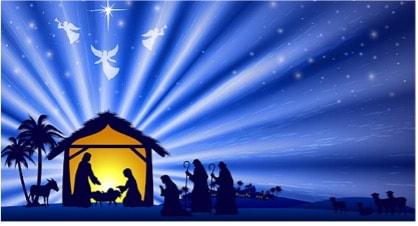

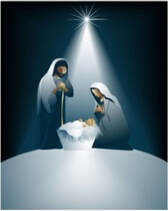
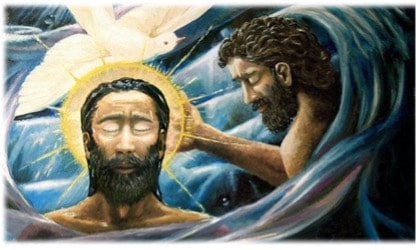
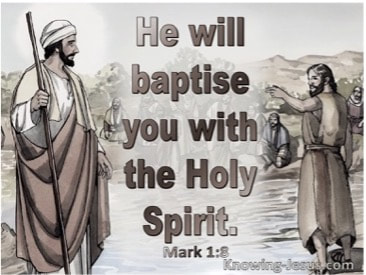

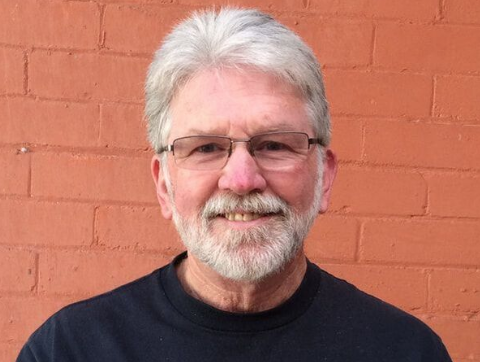
 RSS Feed
RSS Feed